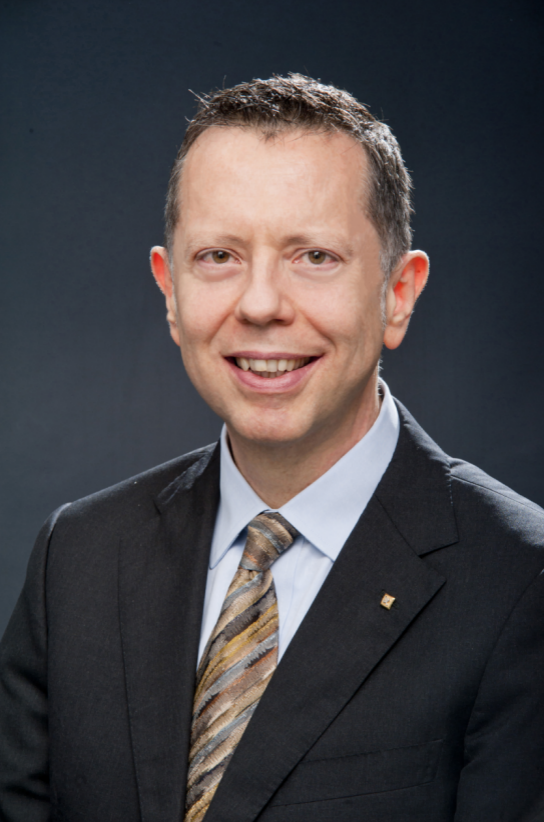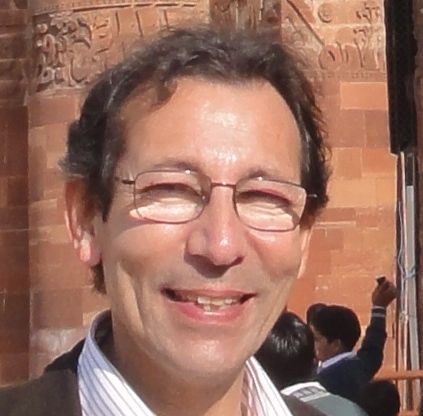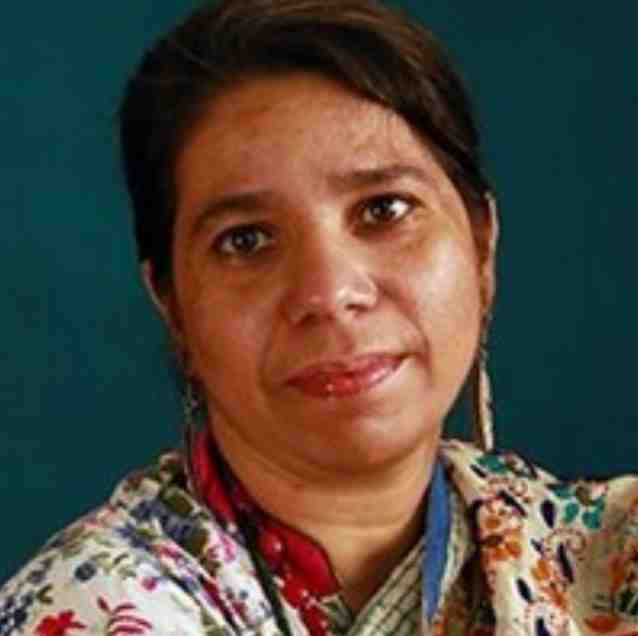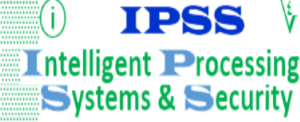The International Conference on Modern Artificial Intelligence and Data Science Systems (MAIDSS22)
CALL FOR PAPERS
In recent years, everyone is talking about Artificial Intelligence and Data Science and their obvious involvements in almost every field. Nowadays more than ever, we think it is the right time to approach these disciplines to better contribute to their orientation in the service of humanity. Our goal is to lead Artificial Intelligence and Data Science to excellence, especially in the MENA region as well as in Africa where, to our knowledge, there is no specialized conference dealing with such topics.
The International Conference on Modern Artificial Intelligence and Data Science Systems (MAIDSS) focuses on Artificial Intelligence and Data Science (AI&DS), their applications and how AI&DS fields can support societal challenges such as health and well-being, food and nutrition, agriculture, clean energy, transportation and risk management, for critical issues such as climate change, environmental and ecological protection, societal safety, etc. At the same time, the socio-economic context has also favored the emergence of frauds and other cyber-criminal activities. AI coupled to DS can be used to safeguard and protect users from these kinds of threats. AI&DS are potentially offering solutions to many practical issues of everyday life and if well exploited can positively revolutionize the life of the people.
MAIDSS aims to put in place sustainable mechanisms to strengthen and promote the cooperation between academics and professionals. It is also a key tool for strengthening industrial cooperation in AI R&D and bridging the gap between research and the market.
This Conference is a privileged place to exchange ideas, debates and networking between academics and entrepreneurs around the key issues of research, development and innovation in the various fields of Artificial Intelligence, Data Science and their Applications.
This session is therefore intended for start-ups, Designers, Developers, Decision-Makers, Consultants, and of course Master/PhD Students, Researchers and Academics.
Conference Tracks (but not limited to)
| Artificial Intelligence (AI) | AI in Technology Trends | AI in Business | AI in Communication | AI in Societal Challenges |
| Cognitive Computing | Big Data | Business Intelligence | Communication Protocols | Biometrics & Cyber Security |
| Constraint Programming | Cloud, Fog & Soft Computing | Business Modelling | M2M Systems and Services | Clean Energy & Environment |
| Deep Learning | Computational Intelligence | Business Process Management | Mobile Adhoc Networks | Climate Change |
| Expert Systems | Computer Vision | Data Analysis | Mobile Edge Computing | Critical Issues |
| Logic & Fuzzy Logic | Data Mining & Web Mining | e-Learning Tools | Multi Edge Computing | Food and Nutrition |
| Gamification | Data Science | Enterprise Architecture (EA) | Network Evolutions (4G/5G) | Health and Well-Being |
| Information Retrieval | Evolutionary Methods | Enterprise Engineering | Network Function Virtualization | Information Security & Privacy |
| Machine Learning | Human Computer Interaction | Enterprise Knowledge Engineering | Networking & Mobile Apps | Medical Diagnosis |
| Multi-Agent Systems | Information Systems | Enterprise Knowledge Management | Next Generation Networks | Privacy in Intelligence |
| Natural Language Processing | IoT & Internet of Everything | Enterprise Resource Planning | Open Spectrum Solutions | Risk Management |
| Neural Networks | Mobile Cloud Computing | Evolution of EA | Satellite Communication Systems | Smart Cities |
| Semantic Web | Robotics | Service Oriented Architecture | SDN & SRN & CRN | Smart Services and Platforms |
| Sentiment Analysis | Smart Grid | Virtual Organisations | Vehicular Networks | Social Computing |
| System of Systems | Software Engineering | Web Analytics | Wireless & Mobile Communication | Societal and Private Safety |
| Virtual & Augmented Reality | Video Analysis | Web Services | Wireless Sensor Networks | Transportation |
| Etc. | Etc. | Etc. | Etc. | Etc. |
IMPORTANT DATES
| Paper Submission Due | September 15th, 2022 |
| Acceptance Notification | October 15th, 2022 |
| Author Registration | October 25th, 2022 |
| Camera Ready Submission | October 30th, 2022 |
| Conference Dates | December 21 – 23, 2022 |

INVITED TALKS
 Pr. Vincenzo Piuri has received his Ph.D. in computer engineering at Polytechnic of Milan, Italy (1989). He is Full Professor in computer engineering at the University of Milan, Italy (since 2000). He has been Associate Professor at Polytechnic of Milan, Italy and Visiting Professor at the University of Texas at Austin, USA, and visiting researcher at George Mason University, USA.
Pr. Vincenzo Piuri has received his Ph.D. in computer engineering at Polytechnic of Milan, Italy (1989). He is Full Professor in computer engineering at the University of Milan, Italy (since 2000). He has been Associate Professor at Polytechnic of Milan, Italy and Visiting Professor at the University of Texas at Austin, USA, and visiting researcher at George Mason University, USA.
His main research interests are: artificial intelligence, computational intelligence, intelligent systems, machine learning, pattern analysis and recognition, signal and image processing, biometrics, intelligent measurement systems, industrial applications, digital processing architectures, fault tolerance, cloud computing infrastructures, and internet-of-things. Original results have been published in 400+ papers in international journals, proceedings of international conferences, books, and book chapters.
He is Fellow of the IEEE, Distinguished Scientist of ACM, and Senior Member of INNS. He is IEEE Region 8 Director (2023-24), and has been IEEE Vice President for Technical Activities (2015), IEEE Director, President of the IEEE Systems Council, President of the IEEE Computational Intelligence Society, Vice President for Education of the IEEE Biometrics Council, Vice President for Publications of the IEEE Instrumentation and Measurement Society and the IEEE Systems Council, and Vice President for Membership of the IEEE Computational Intelligence Society.
He has been Editor-in-Chief of the IEEE Systems Journal (2013-19). He is Associate Editor of the IEEE Transactions on Cloud Computing and has been Associate Editor of the IEEE Transactions on Computers, the IEEE Transactions on Neural Networks, the IEEE Transactions on Instrumentation and Measurement, and IEEE Access.
He received the IEEE Instrumentation and Measurement Society Technical Award (2002), the IEEE TAB Hall of Honor (2019), and the Rudolf Kalman Professor Title of the Obuda University, Hungary. He is Honorary Professor at: Obuda University, Hungary; Guangdong University of Petrochemical Technology, China; Northeastern University, China; Muroran Institute of Technology, Japan; Amity University, India; Galgotias University, India; Chandigarh University; and BIHER, India.
Talk 1: Artificial Intelligence in Cloud/Fog/Edge Computing and Internet-of-Things
Prof. Vincenzo Piuri, Vincenzo Piuri, Università degli Studi di Milano, Italy, http://www.di.unimi.it/piuri
Abstract.
Recent years have seen a growing interest among users in the migration of their applications to the Cloud/Fog/Edge computing and Internet-of-Things environments. However, due to high complexity, Cloud/Fog/Edge-based and Internet-of-Things infrastructures need advanced components for supporting applications and advanced management techniques for increasing the efficiency.
Adaptivity and autonomous learning abilities become extremely useful to support configuration and dynamic adaptation of these infrastructures to the changing needs of the users as well as to create adaptable applications. This self-adaptation ability is increasingly essential especially for non-expert managers as well as for application designers and developers with limited competences in tools for achieving this ability.
Artificial intelligence is a set of techniques which greatly can improve both the creation of applications and the management of these infrastructures.
This talk will discuss the use of artificial intelligence in supporting the creation of applications in cloud/fog/edge and IoT infrastructures as well as their use in the various aspects of infrastructure management.
 Dr. Rachid Alami is Senior Scientist at LAAS-CNRS. He received an engineer diploma in computer science in 1978 from ENSEEIHT, a Ph.D in Robotics in 1983 from Institut National Polytechnique and a Habilitation HDR in 1996 from Paul Sabatier University. He contributed and took responsibilities in several National, European and International research and/or collaborative projects (ESPRIT: MARTHA, PROMotion, IST FP6 projects: COGNIRON, URUS, PHRIENDS, and FP7 projects: CHRIS, SAPHARI, ARCAS, SPENCER, H2020: MuMMER, France: VAP-RISP for planetary rovers, several ANR projects).
Dr. Rachid Alami is Senior Scientist at LAAS-CNRS. He received an engineer diploma in computer science in 1978 from ENSEEIHT, a Ph.D in Robotics in 1983 from Institut National Polytechnique and a Habilitation HDR in 1996 from Paul Sabatier University. He contributed and took responsibilities in several National, European and International research and/or collaborative projects (ESPRIT: MARTHA, PROMotion, IST FP6 projects: COGNIRON, URUS, PHRIENDS, and FP7 projects: CHRIS, SAPHARI, ARCAS, SPENCER, H2020: MuMMER, France: VAP-RISP for planetary rovers, several ANR projects).
He is holding since 2019 the Academic Chair on Cognitive and Interactive Robotics at the Artificial and Natural Intelligence Toulouse Institute (ANITI). His main research contributions fall in the fields of Robot Decisional and Control Architectures, Task and motion planning, multi-robot cooperation, and human-robot interaction.
Talk 2: Decisional Issues for Cognitive and Interactive Robots
Prof. Rachid Alami, LAAS-CNRS, ANITI, France, https://homepages.laas.fr/rachid
Abstract. This talk will address some key decisional issues that are necessary for a cognitive and interactive robot, which shares space and tasks with humans. We adopt a constructive approach based on the identification and the effective implementation of individual and collaborative skills. The system is comprehensive since it aims at dealing with a complete set of abilities articulated so that the robot controller is effectively able to conduct in a flexible and fluent manner a human-robot joint action seen as a collaborative problem solving and task achievement. These abilities include geometric reasoning and situation assessment based essentially on perspective-taking and affordances, management and exploitation of each agent (human and robot) knowledge in a separate cognitive model, human-aware task planning and interleaved execution of shared plans. We will also discuss the key issues linked to the pertinence and the acceptability by the human of the robot behaviour, and how this influence qualitatively the robot decisional, planning, control and communication processes.
 Dr. Ajay Malik Former Head of Architecture/Engineering of Worldwide Corporate Network at Google, Ajay is a technologist, business futurist, & prolific inventor with about 90 patents pending/issued specializing in artificial intelligence, Wi-Fi networking, Quantum computing, and Real Time Location. He is author of “RTLS for Dummies”, “Augmented Reality for Dummies” & “Artificial Intelligence for Wireless Networking”. Ajay Malik is founder of SECO MIND USA LLC, a company that builds AI/IoT software for accelerating digital transformation. Ajay has also held executive leadership positions at Meru Networks, Hewlett-Packard, Cisco, and Motorola. He completed B.E in Computer Science & Technology from IIT, Roorkee, India.
Dr. Ajay Malik Former Head of Architecture/Engineering of Worldwide Corporate Network at Google, Ajay is a technologist, business futurist, & prolific inventor with about 90 patents pending/issued specializing in artificial intelligence, Wi-Fi networking, Quantum computing, and Real Time Location. He is author of “RTLS for Dummies”, “Augmented Reality for Dummies” & “Artificial Intelligence for Wireless Networking”. Ajay Malik is founder of SECO MIND USA LLC, a company that builds AI/IoT software for accelerating digital transformation. Ajay has also held executive leadership positions at Meru Networks, Hewlett-Packard, Cisco, and Motorola. He completed B.E in Computer Science & Technology from IIT, Roorkee, India.
Talk 3: Generative Artificial Intelligence (AI): Let AI Create for you
Dr. Ajay Malik, founder of SECO MIND USA LLC, a company that builds AI/IoT software for accelerating digital transformation, https://beyondthefivesenses.ai
Abstract. In this talk, we will explore the exciting field of generative AI and its potential benefits. We will delve into the inner workings of generative AI, including its various techniques such as Generative Adversarial Networks (GANs) and Variational Autoencoders (VAEs). We will also explore some of the most fascinating and cutting-edge applications of generative AI, such as creating realistic images, videos and speech. Additionally, we will discuss the ethical considerations surrounding generative AI and its potential impact on society. By the end of this talk, attendees will have a solid understanding of the capabilities and potential of generative AI, as well as its current state and future prospects.
 Dr. Amita Kapoor is an experienced AI consultant and educator, with over 25 years of experience in the field of neural networks and artificial intelligence. She has worked as an Associate Professor at the University of Delhi and is presently member of the Board of Directors for Neuromatch Academy, a non-profit organization that aims to democratize deep learning education through online summer schools. As the founder of NePeur, Amita provides data analytics and AI consultancy services to businesses and has successfully helped several clients to leverage AI models in their business for increased efficiency and better business intelligence. She also teaches online classes on data science and AI at the University of Oxford, where she leads discussions and group activities to promote critical thinking and collaboration among students.
Dr. Amita Kapoor is an experienced AI consultant and educator, with over 25 years of experience in the field of neural networks and artificial intelligence. She has worked as an Associate Professor at the University of Delhi and is presently member of the Board of Directors for Neuromatch Academy, a non-profit organization that aims to democratize deep learning education through online summer schools. As the founder of NePeur, Amita provides data analytics and AI consultancy services to businesses and has successfully helped several clients to leverage AI models in their business for increased efficiency and better business intelligence. She also teaches online classes on data science and AI at the University of Oxford, where she leads discussions and group activities to promote critical thinking and collaboration among students.
Talk 4: Reinforcement Learning: Overview and challenges
Dr. Amita Kapoor, Artificial Intelligence and Data Analytics Expert, Educator, Author, Expert in Remote Team Management,
https://www.linkedin.com/in/amitakapoor/
Abstract. Reinforcement learning is a rapidly growing field within the realm of artificial intelligence, which involves the use of algorithms to train agents to learn from their interactions with an environment. This talk will provide an overview of the key concepts and challenges of reinforcement learning.
The talk will start with an introduction to the fundamentals of reinforcement learning, including the concepts of state, action, reward, and value functions. It will then delve into the different types of reinforcement learning algorithms, including value-based, policy-based, and model-based methods.
Finally, the talk will explore real-world use cases of reinforcement learning, demonstrating how this technology can be used to solve complex problems in areas such as robotics, gaming, and autonomous driving.
SUBMISSION GUIDELINES
- Authors are kindly invited to submit research papers/posters/demo, which are not submitted or published or under consideration anywhere in other conference or journal, either following the link https://easychair.org/conferences/?conf=maidss22 or email at maidss@maidss.org.
- Full Papers (10 ~ 12 pages), and short papers (5 ~ 6 pages), written in English, must follow the Springer downloadable template: https://www.springer.com/gp/authors-editors/book-authors-editors/your-publication-journey/manuscript-preparation.
- At least two TPC members will review each submission.
- The acceptance decision will take into consideration paper relevance, originality, novelty, technical depth, impact, quality, scientific-value added, etc.
Proceedings Publication and Indexing
MAIDSS'22 proceedings will be published under the SPRINGER Book Series “Studies in Computational Intelligence“, which is indexed in SCOPUS, DBLP, etc.
We are really pleased to announce that selected papers will be invited for possible publication in the special issues of renowned Journals (pending).
Conference venue
The conference will take place in Rabat, Morocco.
On-line presentation facilities will be available to authors who could not attend the conference.
COMMITTEES
General Chair
IDRISSI Abdellah
IPSS Team, Computer Science Department
Faculty of Sciences of Rabat, Mohammed V University in Rabat
Technical Program Committee
AHMED Mobyen Uddin, Mälardalen University, Sweden
BADARD Thierry, University of Laval, Canada
BELDJEHEM Mokhtar, University of Ottawa, Canada
BELLATRECHE Ladjel, ENSMA Poitiers, France
BELOUADHA F. Zahra, Mohammed V University in Rabat
BEN ABDALLAH Hanene, University of Sfax, Tunisia
BENHASSINE Ahlem, ENSI, Tunisia & Univ. of Jeddah, KSA
BEN OTHMAN Hajer, FCIT, University of Jeddah, KSA
BENABBOU Faouzia, Hassan II University in Casablanca
BENBLIDIA Nadjia, Blida University Algeria
BENHARKAT Nabila, INSA, Lyon, France
BENKHELIFA Elhadj, Staffordshire University, UK
BENLAMRI Rachid, Lakehead University, Canada
BENMAMOUN Mouad, Mohammed V University in Rabat
BENNANI Younès, Paris 13 University, France
BENTAYEB Fadila, Lyon 2 University, France
BOUAMAMA Sadok, FCIT, University of Jeddah, KSA
BOUCHBOUT Khoutir, USTHB University, Algeria
BOUFARES Faouzi, LIPN Paris, France
BOUGUILA Nizar, Concordia University, Canada
BOUKHALFA Kamel, USTHB, Algeria
BOUSSAID Omar, Lyon II University, France
BOUSTIA Narhimène, Saad Dahla University, Algeria
CABANES Guénael, Paris 13 University, France
CHABCHOUB Yousra, ISEP, France
CHAOUI Habiba, ENSA Kenitra, Morocco
CHAOUI Houda, ENSA Fes, USMBA, Morocco
CHIKY Raja, ISEP, France
DAOUDI Najima, ESI, Morocco
DARMONT Jérôme, Lyon 2 University, France
EL AMRANI Najiba, USMBA Universiy, Fes, Morocco
ELKHATTABI Noussaima, Mohammed V University in Rabat
FACCHINI Alessandro, IDSIA, Switzerland
FAVRE Cécile, Lyon 2 University, France
FEKI Jamel, Sfax University, Tunisia
FERRAG Mohamed Amine, LRS, Guelma, Algeria
FULVIO Mastrogiovanni, University of Genova, Italy
FUSHI David Luigi, Bridging Consulting, UK
GAHI Youssef, ENSA Kenitra, Morocco
GARGOURI Faiez, Sfax University, Tunisia
GHOZZI Faiza, Sfax University, Tunisia
GIONIS Aristides, Aalto University, Finland
GRAFFI Kálmán, Düsseldorf University, Germany
GROZAVU Nistor, Paris 13 University, France
HAMMAMI Moez, HIM, Tunisia
HANIFI Majdoulayne, IUR, Rabat, Morocco
HANY Ammar, West Virginia University, USA
HARMELING Stefan, Düsseldorf University, Germany
HAYAR Aawatif, Hassan II University, Casablanca
HIOUAL Ouassila, Khenchela University, Algeria
HLUCHY Ladislav, Institute of Informatics, Slovakia
HSAIRI Lobna, FCIT, University of Jeddah, KSA
IDOUDI Hanene, ENSI, University of Manouba, Tunisia
IDRISSI Abdellah, Mohammed V University in Rabat
IMRAN Ahmad, University of Windsor, Canada
ISHIDA Toru, Kyoto University, Japan
JAFAR Alzubi, Al-Balqa Applied University, Jordan
JARARWEH Yaser, JUST, Jordan
JARRAR Mustapha, Birzeit University, Palestine
KABACHI Nadia, Lyon1 University, France
KAZAR Okba, Biskra University, Algeria
KHALIL Ismail, Johannes Kepler University, Austria
KRIAA Lobna, ENSI, University of Manouba, Tunisia
LANG Jérôme, Paris Dauphine University, France
LANGAR Rami, LIGM, UPEM, France
LI Kuan-Ching, Providence University, Taiwan
LIOTTA Antonio, Eindhoven University, Netherlands
LORENZ Pascal, University of Haute Alsace, France
MANIKANDAN R., SASTRA Deemed University, India
MAHDAOUI Latifa, USTHB University, Algeria
MARTHON Philippe, IRIT, Toulouse University, France
MATSUBARA Shigeo, Kyoto University, Japan
MEZIANE Abdelkrim, CERIST, Algeria
MOURAKAMI Yohei, Kyoto University, Japan
MOUSSA Rim, Carthage University, Tunisia
NABLI Ahlem, Sfax University, Tunisia
NAÏT BAHLOUL Safia, Oran University, Algeria
NEMICHE Mohamed, FS Agadir, Morocco
OMARY Fouzia, FSR, Mohammed V University in Rabat
OMRI Kaouther, FCIT, University of Jeddah, KSA
OUACHA Ali, Mohammed V Univerity in Rabat
OUHBI Sofia, IUR, Rabat, Morocco
PASQUIER Philippe, Simon Fraser University, Canada
PEREZ Gregorio Martinez, University of Murcia, Spain
PIURI Vincenzo, University of Milan, Italy
PRECUP Radu-Emil, University of Timisoara, Romania
PUNTES Daniel Franco, UAB, Spain
RAHIM Rana, AUB, Lebanon
RAVAT Frank, Toulouse University, France
ROBBANA Riadh, INSAT, Tunisia
RODRIGUEZ Sebastian, UTN, Tucuman, Argentina
ROSHAYU Mohamad, University of Jeddah, KSA
ROTHMAN Denis, AI Expert, Paris, France
SAHAMI Mehran, Stanford University, UK
SALANI Matteo, IDSIA, Switzerland
SALMELIN Riitta, Aalto University, Finland
SARKKA Simo, Aalto University, Finland
SCHIEX Thomas, INRA, Toulouse, France
SHEIKH Iqbal Ahamed, Marquette University, USA
SLAIMI Fatma, University of Marseille, France
SNOUSSI Samia, FCIT, University of Jeddah, KSA
SOREL Reisman, California State University, USA
SOUDI RIFI Nada, ISCAE, Casablanca
SUYKENS Johan, KU Leuven, Belgium
TAKAYUKI Ito, Nagoya University, Japan
TESTE Olivier, Toulouse University, France
TOGELIUS Julian, New York University, USA
TRAGHA Abderrahim, Hassan II University, Morocco
TU BAO Ho, JAIST, Japan
VELIN Tonny, Answare, Spain
WALSH Toby, UNSW Sydney, Australia
Wang Frank, University of Kent, UK
ZAHIR Jihad, UCAM, Marrakech, Morocco
ZARAKET Fadi, AUB, Lebanon
ZGHAL Sami, Jendouba University, Tunisia
ZURFLUH Gilles, Toulouse University, France
Organizing committee
TBA
REGISTRATION
| Category | Without Paper | With Paper |
| Student | 40 Є | 150 Є |
| Academic | 60 Є | 150 Є |
| Professional | 60 Є | 150 Є |
Payment must be made by Bank Transfer to the account :
IBAN: TA
SWIFT: TA
Each accepted regular paper or short paper MUST be uploaded by September 15th, 2022 The format for camera-ready paper is available on the conference website (https://maidss.org/maidss22).
A regular paper is limited to 6 pages, and a maximum of 2 extra pages. There’s a cost for each extra page.
A short paper is limited to 4 pages, and a maximum of 1 extra page.
If you wish to attend the conference, please fill out the following form: The form
PROGRAM
Location
Mohammed V University in Rabat Faculty of Science,
4 Avenue Ibn Battouta, Rabat, Morocco
Contact us
Email: maidss@maidss.org
SPONSORS





